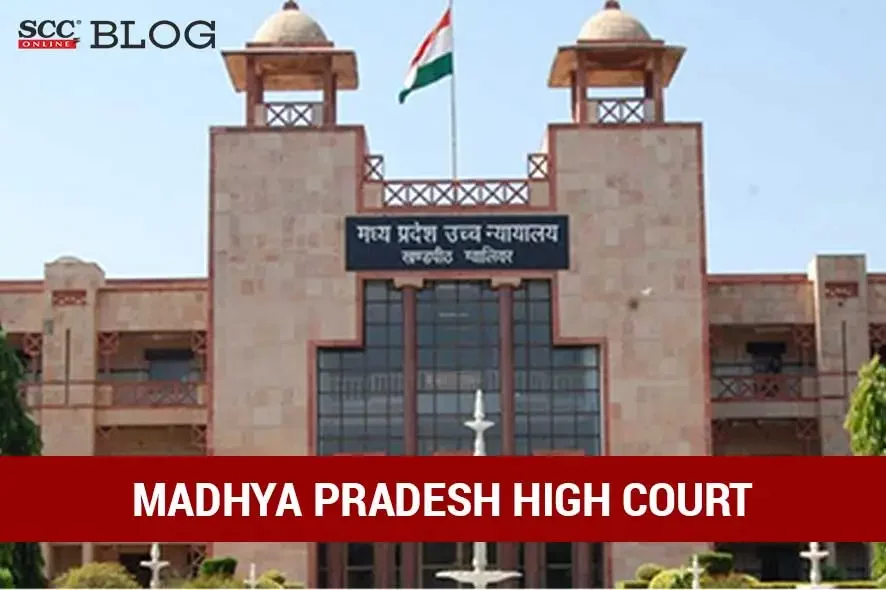Madhya Pradesh High Court: In a petition filed under Section 482 of the Code of Criminal Procedure 1973, (‘CrPC’), seeking to quash the to quash an order dated 02-11-2020 on the contention that the Sessions court did not have the jurisdiction to take suo moto cognizance of an impugned order under Section 397(2) of the CrPC Vishal Dhagat, J. dismissed the petition stating that the Sessions Court had the appropriate jurisdiction to pass the orders under Section 397 as it was an intermediate order.
FACTUAL MATRIX
The petitioner firm applied for release of the jewellery and cash amount which was intercepted by police from a man travelling on a train on 01-10-2020. The petitioner firm claimed their ownership on it. The petitioner firm proved its ownership beyond reasonable doubt and thus the Special Railway Magistrate considering the judgement passed in the case of Sunderbhai Ambalal Desai v. State of Gujarat, (2002) 10 SCC 290, released the property on 22-10-2020.
The Sessions Court took suo motu cognizance of the impugned order and stayed its operation and issued notices to the petitioner firm and State of Madhya Pradesh. A direction was given to register the case as criminal revision and make it over to Special Judge Scheduled Caste/Scheduled Tribe (Prevention of Atrocities) Act, 1989 Jabalpur.
The petitioner firm’s case was that the Sessions Court did not have the jurisdiction to take suo motu cognizance of the impugned order as it was interlocutory in nature and not a final order, therefore, criminal revision against order is barred under Section 397(2) of the CrPC. It was also contended by the petitioner that the proceedings did not arise from a search and seizure carried out by the Income Tax Department under Section 132 of the Income Tax Act, 1961, (‘ITA’). Instead, they stemmed from a police case. As there was no satisfaction from the Income Tax Authority in issuing a warrant of authorization, there was no restriction on the Railway Magistrate to pass orders on Supurdginama.
ANALYSIS
Whether the Sessions Judge rightly exercised power of suo motu revision under Section 397 of the CrPC ?The Court said that Revisional Court can exercise its jurisdiction in case of intermediate orders or such order which touches upon the rights of the parties. The Court noted that the Special Railway Magistrate had decided on the ownership of cash and valuables intercepted by the police by examining accounts, income tax return and other documents filed by the petitioner firm. Therefore, the Court said that this order touches upon the ownership of the property and is an intermediate order and not an interlocutory one thus, the Revisional Court hadjurisdiction to take suo motu cognizance of the order passed by Special Railway Magistrate and there is no jurisdictional error.
Powers of Income Tax Authority
The Court noted that Section 131(1A) read with Section 132 of the ITA lays down that if the Principal Director General, Joint Director, Assistant Director or other Authorised Officer has the reason to suspect that any income has been concealed or is likely to be concealed by a person within his jurisdiction, then for making an enquiry it can exercise powers under Section 131(1) of ITA. It confers powers such as discovery, inspection and forcing attendance of a person before authorities, issuing commissions, compelling production of books of account etc. The Court said that the Section 131 of ITA allows the income tax authority to investigate and inquire about property, cash, or valuables obtained during an investigation by other law enforcement agencies, even if no income tax case was pending and the authority can conduct an inquiry to ensure that the appropriate income tax has been paid on these possessions.
Jurisdiction of the Railway Magistrate to release valuables
The Court examined whether after issuance of authorization warrant, the Railway Magistrate had any jurisdiction to release valuables and cash on Supurdginama or not. The Court relied on Union of India v. Police Station Janakganj, (1990) JLJ 734, wherein, it was held that Judicial Magistrate First Class does not have any authority to release property or valuables on Supurdginama. The Court noted that here, the GRP in Jabalpur seized property on 01-10-2020, and subsequently issued summons on 02-10-2020. The Assistant Director of the Income Tax Department requested the GRP to retain the cash and ornaments until further notice, and a warrant under Section 132(a) of the ITA was issued on 08-10-2020. However, the Court noted that the Railway Magistrate ordered the release of the valuables and currency notes under Supurdginama on 22-10-2020, after the warrant issued by the Income Tax Authority. Considering these events, the Court said that the Railway Magistrate lacked jurisdiction to consider the application for releasing the valuables and currency notes under Supurdginama.Therefore, the Court held that the Railway Magistrate had taken into consideration the rights of petitioner over the property in question, thus, the order touches upon the rights of the parties to get the interim custody of the property, hence making the order in question an intermediate order and criminal revision against said order is maintainable.
In view of the aforesaid facts and circumstances, the Court dismissed the petitioner firm’s case.
[Mectec v. State of Madhya Pradesh, Miscellaneous Criminal Case No. 46235 of 2020, Order Dated: 24-11-2023]
Advocates who appeared in this case :
Counsel for the Petitioner: Senior Advocate Ashish Shrivastava, Advocate Dayaram Vishwakarma
Counsel for the Respondent:Government Advocate Y.D. Yadav, Advocate Siddharth Sharma







